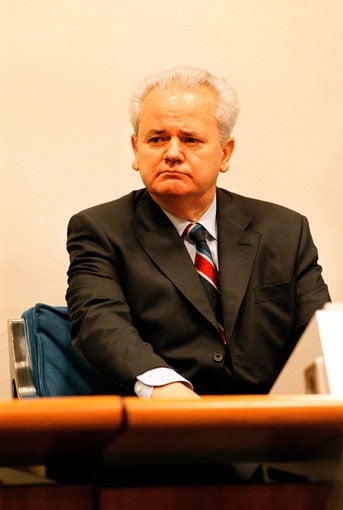
Slobodan Milosevic was in many ways a paradoxical figure. Long criticized for being a corrupt opportunist, he could also be engaging and charming. Often described as being a paranoid psychopath, he could quickly swing from the role of staunch Serbian nationalist to conciliatory peacemaker. As Yugoslavia disintegrated in the early 1990’s, leading to violent conflict, the United States began to view the protean Milosevic as the key to reaching a peace agreement in the region.
Rudolf Perina served as Chief of Mission of the U.S. Embassy in Belgrade from 1993-96 and describes working with Milosevic, who usually worked without a staff and avoided putting anything down on paper. He also details Assistant Secretary (and later lead negotiator) Richard Holbrooke’s early involvement in the Balkans, the tragedy in the making that was Kosovo, and the beginning of talks which would become the basis for the Dayton Peace Accords. He sadly notes the passing of his colleague, Deputy Assistant Secretary Robert Frasure, who died with two others in a car crash on the road to Belgrade. He began his interview with Charles Stuart Kennedy in December 2006. Go here to read about the negotiations at the Wright-Patterson Air Force Base in Dayton and about the Srebrenica massacre.
“He rarely showed any emotion, even when discussing immense human suffering and tragedy”
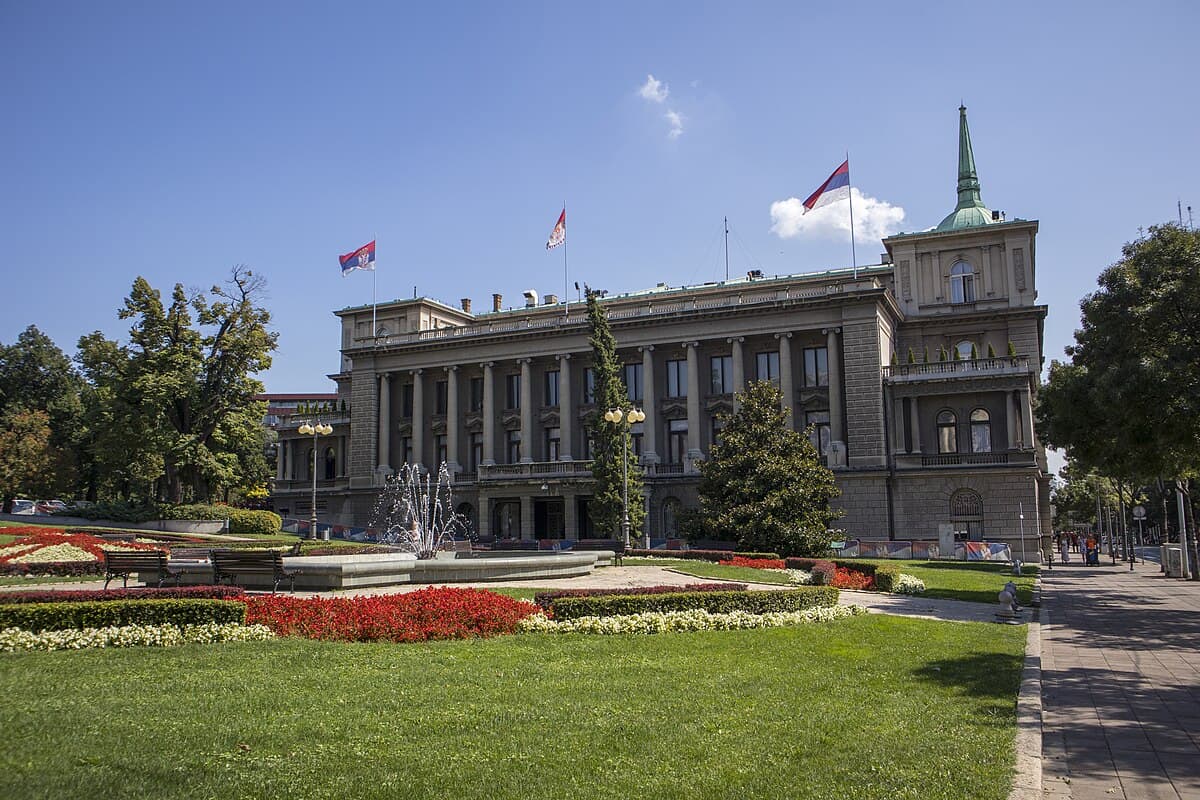
PERINA: I cannot remember the exact content of that first demarche [as Ambassador to Serbia] but it was along the same vein as numerous other messages I delivered that first year—basically all warning [Milosevic] against interference in Bosnia and sometimes warning him very bluntly that the U.S. would take action if Serbia continued to support the Bosnian Serbs militarily. I probably had well over a dozen meetings with him that first year. On the first few, I took Jim Swigert along but then I started seeing him one-on-one because he spoke more openly. His English was fluent so there was no need for interpreters.
As I got to know him, the bizarre thing was that he was actually rather engaging. I think Dick Holbrooke found this later as well. It was quite intentional on Milosevic’s part. He wanted to engage the U.S. because he knew that we were key to Western policy in the region. Dealing with him was very informal and completely unlike dealing with some stuffy head of state. In the meetings, he loved to drink Johnny Walker Black just straight on the rocks. He was a chain smoker and smoked these cigarillos, not cigarettes but sort of small cigars. For a few months that first year, he tried to quite smoking and complained of how difficult it was. He later started the habit again and smoked quite a bit by the time I was leaving Belgrade.
It took a while for someone to really see evidence of how strange he was. He was very skilled in role playing. At first he would try to impress visitors with what a regular guy he was — drinking, smoking, and being very informal. He would stress his background as a banker and his contacts with American bankers when he visited the United States. He would drop names of New York bankers he allegedly knew and ask how they were.
But then gradually, one could see that he was very strange. He rarely showed any emotion, even when discussing immense human suffering and tragedy. This was not only in relation to discussion of Muslims or Croats, but also to Serbs. I remember seeing him at the time the Serbs were expelled from the Krajina in Croatia, and there were these caravans coming into Belgrade of displaced Serbs with all their possessions on wagons and no place to go. I remember meeting with him, and he did not appear particularly concerned about them. There was no emotion about the tragedy and enormity of the conflict going on next door. In part, he wanted to show that he was very tough. But there was a genuine lack of compassion that was truly frightening….
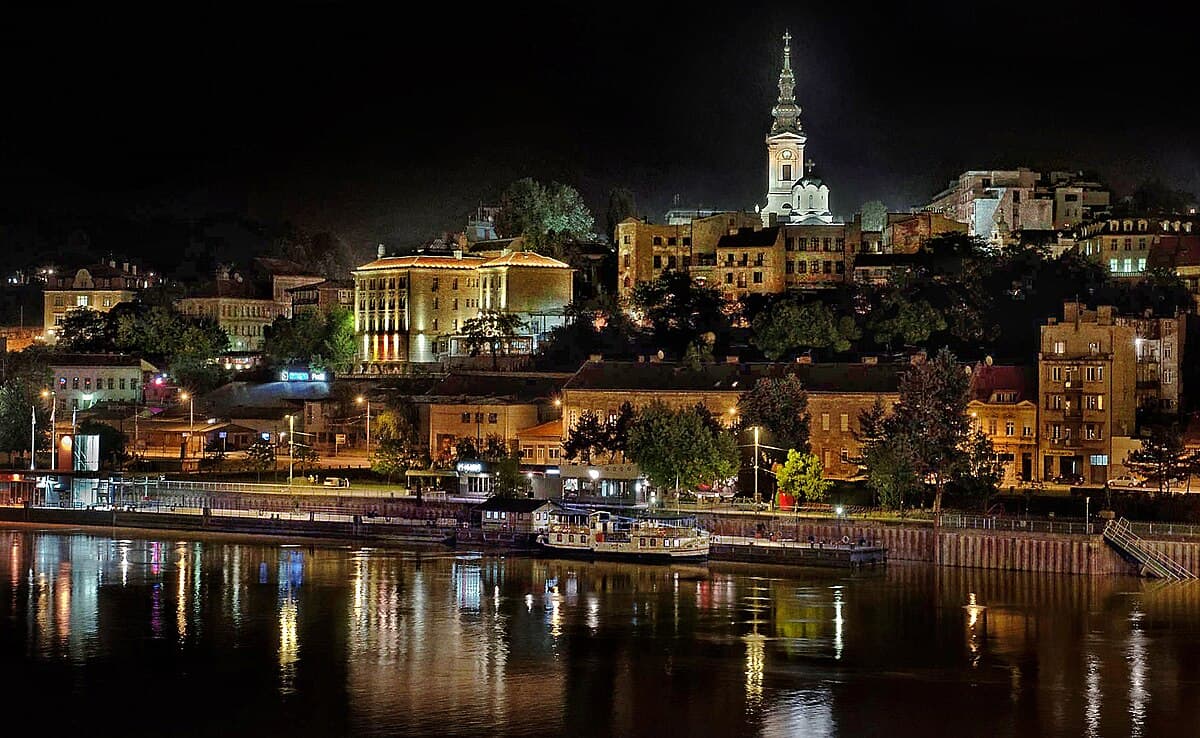
The other unusual thing that I soon learned about him was that he never flinched. Some of the demarches that I had to deliver during that first year were very, very tough as compared to normal diplomatic exchanges. In most countries I would probably have been expelled if I said those kinds of things to a president. The gist of some of these messages was that we think you are a war criminal and we’re going to bomb the hell out of you unless you stop doing so and so. I am of course exaggerating, and they obviously did not use that language, but that was the unmistakable gist of the messages, particularly as Washington got more and more frustrated and angered with Milosevic.
And I always delivered the full and exact text of the demarche. I summarized it orally and then gave him the written text, which he always read before responding. No matter how tough or threatening the message was, he would always just look up after reading it and say calmly, “Well, you know, this is not true,” and begin discussing it as though we were discussing the weather. He would never flinch and never get angry or show emotion. I think the intent again was to give the impression of being tough and unafraid himself. He would also look directly into your eyes when speaking or listening, and lean forward very close to give the impression of listening intently. It was a fairly intense look, and his eyes never wandered, but it was not a threatening or angry look but rather a type of “I am not afraid” look.
Q: You could almost say he was a psychopath.
PERINA: Well I am not a psychiatrist but he was certainly strange and unlike any other person I have ever dealt with. There were a couple of other strange things that later on became even more apparent. There was never any staff that you could see around him. I would come to his office, and the only people I ever saw were his bodyguards and one assistant named Goran Milinovic. I never saw anyone else — not a secretary, a receptionist, or any staffer other than Goran.
Goran was this large muscular fellow with a beard, and he functioned as everything, including note-taker. He would take copious notes at every meeting but he wrote so quickly that I cannot imagine they were legible. I think it was all for show. I don’t believe Milosevic wanted notes of most of his meetings. When I came alone, then Goran did not sit in on the meetings, and they were only one-on-one. This did change a bit later when Bob Frasure, our Deputy Assistant Secretary from Washington, started coming. In those meetings sometimes Milan Milutinovic, the Foreign Minister, and Chris Spiro who was an American advisor of Milosevic, would join.
But the whole atmosphere of these sessions was very strange. Most heads of state want entourages to show their importance. With Milosevic, it was just the reverse. The most bizarre episode I recall with Milosevic came one evening when he called up and asked me to join him for dinner. It was very strange to be invited like this by him, and to this day I do not know what he was trying to achieve other than to get closer to the United States and show how he wanted to work with us. This was in the period when Bob Frasure had started making visits to Belgrade, and the U.S. was starting to engage as the primary mediator of the Yugoslav conflict, replacing the Europeans. So Milosevic knew that the U.S. had become the key player on what happens in Yugoslavia.
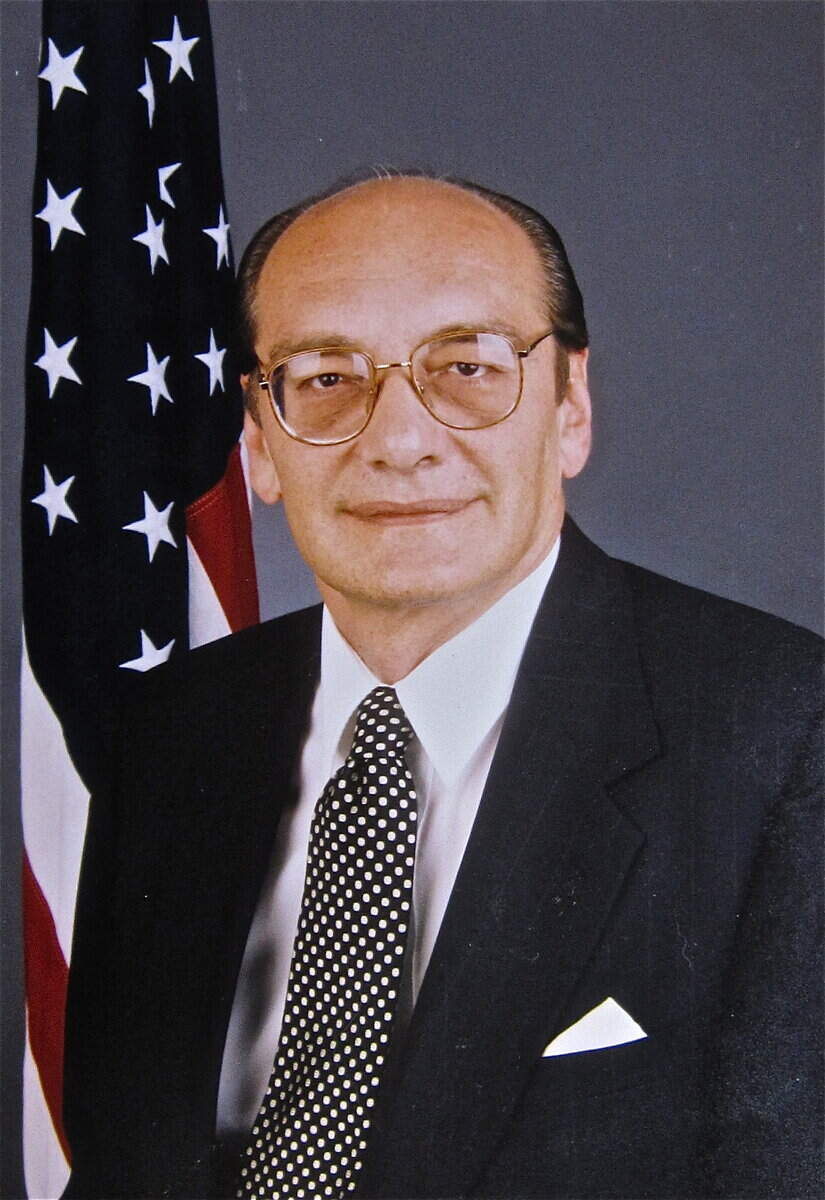
He called up, even though Bob Frasure was not in town at the time, and asked me to come over to one of the country houses and have dinner with him. We were having dinner, and he was his usual, chatty self, giving the appearance of a perfectly normal person. And then in the middle of the conversation he said, “Did you know that Warren Zimmermann [the last U.S. ambassador to Yugoslavia, 1988-92] tried to have me assassinated?”
I was stunned. I could not believe he said that and thought that he was perhaps testing me in some way.
I answered “Mr. President, I know Warren Zimmermann. I know American policy. I don’t want you to believe that. It isn’t true.”
He said, “No, no. It’s absolutely true. I have evidence that Warren Zimmermann was plotting with Vuk Draskovic to have me assassinated and we have tapes to prove this.” Vuk Draskovic was probably the most prominent dissident in Serbia at that time, and I am sure Warren Zimmermann met with him, but the assassination charges were of course absurd and indicative of Milosevic’s paranoia.
From that time on I realized that he was in a completely different world. But it took a while, and incidents like this, to really understand how he saw the world and how paranoid he was because he was generally so good at being able to cover it up. I think he genuinely believed the Zimmermann story, though I have no idea what kinds of tapes he was talking about. I never got around to telling Warren Zimmermann that story. I’m sure he would have been amused by it.
Q: If he was so out of it, did Milosevic really understand what was happening in Bosnia?
PERINA: That I think he did, although of course he always tried to give the reverse impression— that he was an outsider looking in, just like all the rest of us. I remember that when I raised Srebrenica with him, the position that he took was roughly: “Why are you coming to me? Why do you think I am responsible? I’m doing my best to try to calm Mladic but Bosnia is not my country. The United States itself says this is a separate country now, an independent country. Why do you come to me?” This was his basic response.
The difficulty there was that we did not actually have a smoking gun to tie him to the events in Bosnia. Even later at the Hague Tribunal they had the problem of proving that he was linked to these events because they never found the smoking gun. When Milosevic did agree to take some action, he would portray it as almost a favor to us and a demonstration of how he also wanted to end the fighting in Bosnia. Again, during one of the Srebrenica demarches after the city fell, he said he would do his best to prevent any reprisals and that he would call Mladic. He picked up the phone and asked somebody to get Mladic for him. I remember he left the room for about ten minutes and then came back and said, “I talked to Mladic. He’s crazy but I conveyed your warning to him.”
This was typical. For the most part, he didn’t defend Mladic or the other Bosnian Serbs. He would tell me Mladic was crazy but that he tried to convince him to stay calm and not overreact. During Srebrenica, he said that Mladic promised him that he would not harm the people of Srebrenica. But whether he actually called Mladic or did not call Mladic, I have no idea. I suspect he did not. It was probably all political theater to appease us and make himself look like a good guy who shared our concerns. Unfortunately, we now know that Mladic did do terrible things to the people of Srebrenica.
Q: Did we ever answer, “Well, okay. If you have no control, these aren’t your people, then you obviously have no objection to our going in and bombing the hell out of them?”
PERINA: I don’t think we ever put it in those terms but it was certainly implied that we would use military force if needed. But we did not want to let Milosevic off the hook by accepting his argument that he wasn’t responsible. Part of the difficulty with our policy, and why it was a difficult line to maintain, was that we were trying to maintain that Bosnia was a fully independent country in which Serbia had no right to intervene and yet at the same time asking Milosevic to intervene by restraining Mladic and the Bosnian Serbs. There is a bit of a contradiction there, not a full contradiction but a bit. He exploited this a lot with this position of “Why do you come to me?”
Q: When you got back to the Embassy and sat with your colleagues, did you feel Milosevic was really running the show in Bosnia or did you think that he was perhaps complicit but not in control of the Bosnian Serbs?
PERINA: To be very honest, I did not know. I don’t think Washington really knew but our best guess was that it was a mixture of the two. In certain ways Milosevic was certainly helping the Bosnian Serbs. Serbia provided military support, financial support, logistical support and so on. Some of this came through government channels but also a lot came from private groups and militias that sprang up, like Arkan’s “Tigers.” So how much influence this gave Milosevic over the Bosnian Serbs, or how long they could have continued to fight without Serbian support, is very difficult to gauge.
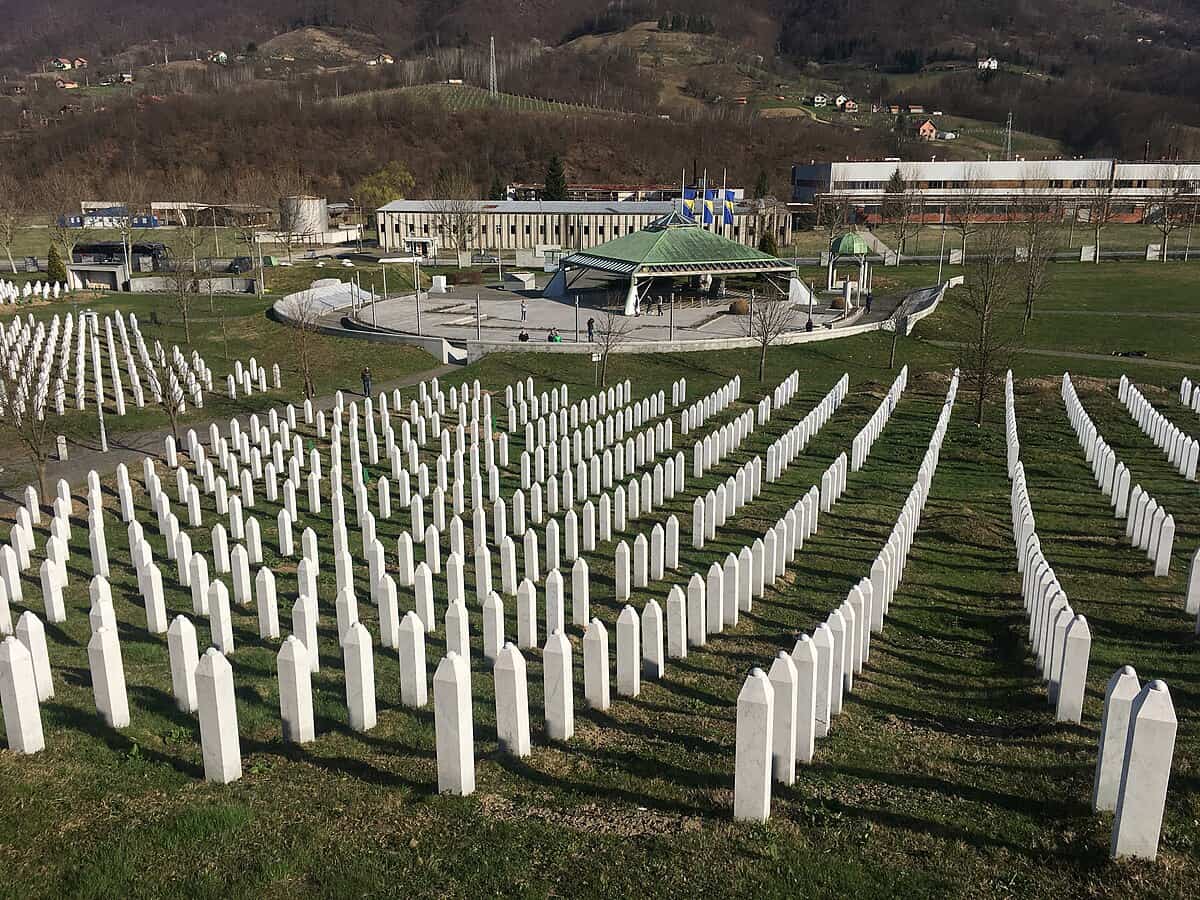
Milosevic was complicit but can one say he was responsible for specific actions, like the slaughter of the Muslim men after the fall of Srebrenica? Did he know about that? Did he concur with that? I don’t know. We don’t know. Very frankly even later when he was on trial in The Hague and I was interviewed in The Hague by the prosecutors, it was clear that they also did not have a smoking gun on this. Certainly Milosevic bears much responsibility for the war as a whole because of his actions in starting the conflict but to what degree he exercised control over specific actions after the conflict started is a very difficult question.
Part of the reason that we didn’t have a smoking gun was this incredibly strange way that he operated. I mentioned earlier how there was never a staff one could see in his offices in Belgrade. I visited dozens of times and never saw any infrastructure there. It was like sitting in a deserted building. This was even the case later during my tour when Bob Frasure, the Deputy Assistant Secretary responsible for Yugoslavia, started coming to Belgrade, and to a large degree also when Holbrooke started coming. Bob Frasure and I often discussed how bizarre this was.
In one instance, Milosevic invited Frasure and me to a country house outside of Belgrade for discussions. We put together a draft list of some points and wanted to make a copy. We asked if there was a copying machine we could use. Milosevic answered “I don’t have a copying machine here.” This was in the country residence of the President. There was no staff and he claimed there wasn’t a copier. He said, “I have a fax” and in the end we made a copy of it by faxing it to ourselves. When Bob and I were leaving, we commented to each other on how incredible this was. This was the President of the country in one of his residences, and there was not a copying machine in the house.
This again shows why it was difficult later to find a smoking gun. Milosevic greatly limited the number of people he kept around himself, and he really avoided paper. He did not like paper. He always claimed he did things by phone or that he talked to people, that he talked to Mladic or something like that. At least in our presence you never saw any paper that he had on his desk or anywhere. And of course participation in meetings with him was very restricted.
Q: What was the process of getting to Dayton? How did the talks evolve?
PERINA: I have to give a little background here. It started when Holbrooke became the Assistant Secretary for Europe and recognized that our policy of isolating Milosevic and just delivering threatening demarches to him was not working. A decision was made to send out Bob Frasure to engage with Milosevic as an envoy from Washington and to try to elicit his help in ending the conflict.
Initially, there was not a specific agenda to these meetings. They were exploratory and designed to show Milosevic that the U.S. might engage with him in a more positive way if he really proved helpful on Bosnia. We did, with Bob, eventually work out a set of broad principles on how to end the conflict, which in fact became the basis of the Dayton Agreement. These principles were very broad initially and primarily designed to draw Milosevic into a process and get him engaged.
Q: This was still a period when the Europeans were trying to play a role in resolving the conflict. What were they doing?
PERINA: Well, the Europeans were still talking about finding a solution but in fact they were doing very little. The whole European Union effort largely collapsed. One of the reasons, however, was that Milosevic did not really want to deal with the Europeans. He on occasion saw the British Chargé d’Affaires Ivar Roberts, but otherwise he made no effort to engage with the Europeans.
He told us that he wanted to resolve the conflict with the Americans because only we were objective toward all the parties and did not have favorites, in the way that, for example, the Germans favored the Croats. He said that only we were fair and could be trusted. There was, of course, a lot of flattery in this. I think Milosevic also assumed that if he made a deal with the Americans, the Europeans would all follow, and he was correct in this.
An interesting side point is how he denigrated the Russians in discussions with us. He did have meetings with the Russian Ambassador, and the Russians were the most vocal international supporters of Serbia. That is why they had an ambassador and not a chargé d’affaires — they had no qualms in giving Serbia diplomatic recognition. But when I asked Milosevic about his dealings with the Russians, he would say, “The Russians are useless. They’ve got their own problems. They’re not doing anything. They can’t help in this.”
The Russian position was also interesting. I met a few times with the Russian Ambassador, who was not a particularly friendly fellow and did not have much contact with the rest of the diplomatic corps. Clearly, the Russians had some agenda in the region but they were very weak and had just lost their empire. They could not be expected to play a powerful role. But what was interesting was how they often misread the situation in the Balkans. Putting their money on almost full support of Milosevic was not a way to gain influence in the region. And later, the Russians completely misread and underestimated the problem of Kosovo, though many other Europeans did that as well….
The Kosovo Dilemma
Q: So what was happening with Kosovo in your time?
PERINA: Kosovo was a whole other story. The entire diplomatic corps in Belgrade talked a lot about Kosovo but the U.S. took it most seriously. We were always worried about Kosovo. The conventional wisdom was that it would blow up someday, but no one knew when. The fact that it had not blown up, however, invariably led to it being relegated to the back burner. People were just too focused on Bosnia, where an actual war was going on, to focus on someplace where a potential war might take place. But we still did take it more seriously than other countries, in part also because of the interest in the U.S. Congress. The Albanian lobby in the U.S. was very effective. Probably only the Israeli and Armenian lobbies were better.
I do not mean to imply that the Kosovo problem was somehow an artificial one, however. It was a very real problem, and very bad things were happening in Kosovo. The Serb approach was basically a colonial one. The Kosovar Albanians were treated brutally. They saw the U.S. as their major protector and often showed me photographs of the abuse: terrible pictures of people beaten, women raped, and so on. They were very good in documenting all of this and taking their case to the international community.
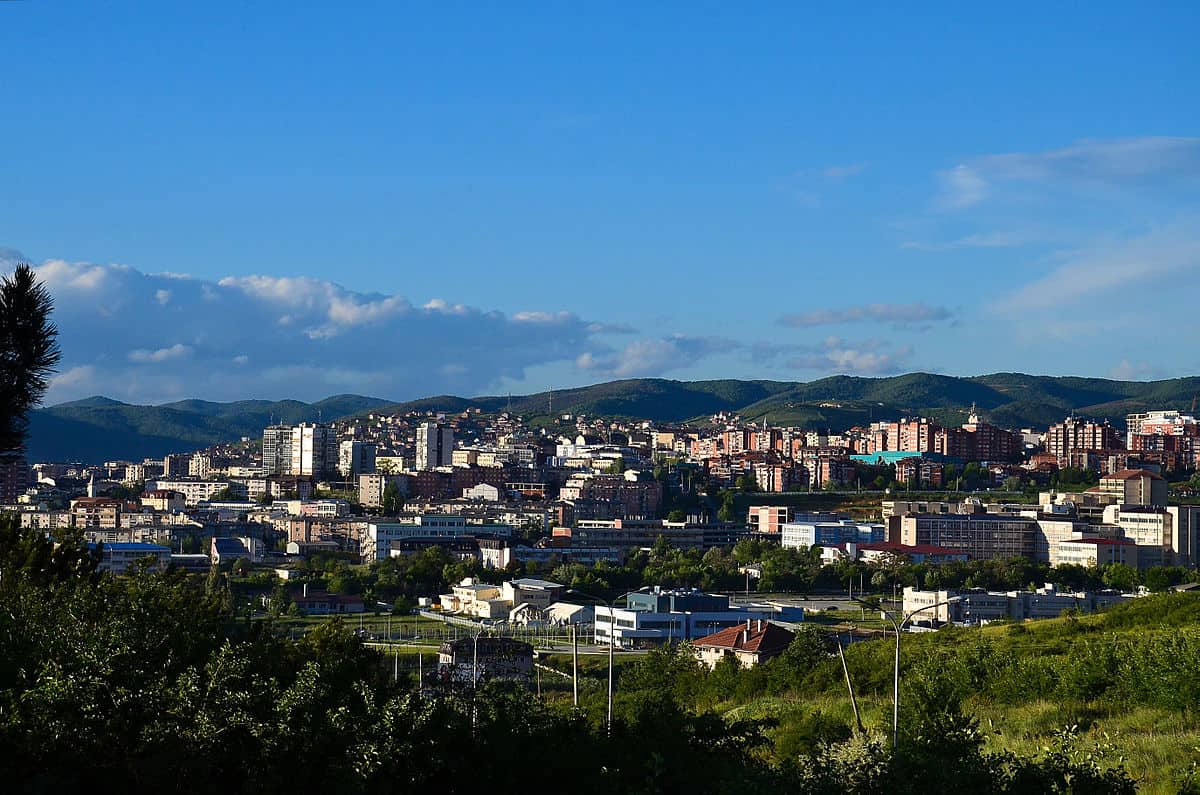
On the other hand, in fairness one must say that many Serbs in Kosovo were also beaten up by Albanians when opportunities presented themselves for this. The gulf and the hatred between Serbs and Albanians were enormous. I haven’t started talking about the Holbrooke visits yet but one of the things that I tried to do with Holbrooke was to get him more interested in Kosovo. I met a number of times with Ibrahim Rugova, the Kosovar Albanian leader who was elected President in elections that the Serbs did not recognize. He was a very moderate, reasonable and impressive person who did much to try to avoid an explosion in Kosovo because he knew, rightly, that the Albanians would pay an enormous price for it. He promoted peaceful resistance to Serbia and did so very effectively.
Rugova almost never came to Belgrade but he told me that he would be willing to come if he had an opportunity to meet Holbrooke. I tried to interest Holbrooke in this but he turned it down. His position, both in Serbia and later during the Dayton talks, was that one had to resolve Bosnia first, that if the two issues became intertwined they would create a Gordian knot much more difficult to untangle. So he wanted to stay completely away from the Kosovo issues until Bosnia was resolved. He felt if he ever met with Rugova, even once, he would not be able to get away from it.
I think he was right but it was hard explaining this to the Albanians, which became my job both in Belgrade and during the Dayton talks. While we were in Dayton, there was a demonstration outside the base of several hundred Albanian-Americans who came from all over the country to ask that Kosovo be put on the Dayton agenda. It was the only demonstration during the Dayton talks, and I was assigned to go out and meet with the leaders. They were a very peaceful and reasonable group, headed by an Albanian-American physician from Texas.
I told them very honestly that Kosovo was not on the table in Dayton because this was a meeting about the war in Bosnia but I assured them that the U.S. had not forgotten Kosovo and would deal with the issue at the right time. They were disappointed, of course, but seemed to accept the argument. It was true that we had not forgotten the issue but there was just too much on the Yugoslav agenda at the time. Back in Belgrade, however, I raised Kosovo regularly in my meetings with Milosevic. I tried to convince him that Belgrade’s policy would lead to another explosion and violent conflict in the region if it remained unchanged.
His standard response was that we were taken in by Kosovar Albanian propaganda, that most Albanians in Kosovo were quite happy, and that only a few troublemakers were fomenting discontent. I am not certain if he really believed this and was so totally misinformed about the situation in Kosovo, or if he just believed that he could keep a lid on the problem indefinitely. I suspect it was a combination of both.
Q: But it was also a nationalistic issue throughout Serb society.
PERINA: Absolutely. Even the pro-Western, pro-democracy Serbs we knew had very little sympathy for the Kosovar Albanians. There were a few exceptions to this but they were very rare. The gulf even between moderate and reasonable Serbs and Albanians was enormous. To me it was clear that the situation was untenable and would lead to a crisis at some point. What we tried to do in the interim was to urge both sides toward moderation and non-violence.
In the case of the Albanians, we had Embassy officers specifically assigned to visit Kosovo on a weekly basis to maintain contact with the Albanians and show them that their plight had not been forgotten by the United States. These officers stayed in local hotels and spent a lot of time going back and forth. After the Holbrooke visits to Belgrade started and Milosevic was trying to demonstrate what a reasonable person he was, I had the idea of asking him whether the Embassy could open a permanent office in Pristina, the Kosovo capital, as a permanent base for our visits. This was actually a big request since everyone knew the sensitivity of Kosovo, and we still lacked formal diplomatic relations for even an Embassy, much less an Embassy branch office.
But I persuaded Holbrooke to ask the question, which was one of the few times he agreed to engage on Kosovo. Milosevic was caught off guard and responded in a cavalier way “ Sure. If you want to do this, why not.” I think he regretted this answer the minute he gave it, and the Foreign Ministry certainly regretted it when it came to working out the details. But we did open an office in Pristina, and I think it was one of the more significant accomplishments of my tour. The Kosovar Albanians were so delighted that they actually found a building for us to use free of charge. They saw it as a big step forward in getting international recognition for the entire Kosovo problem. It was also seen as a victory for Rugova and his non-violent policies. It helped defuse the tension, at least for a while….
The Kosovar Albanians were very anxious to have Western diplomats, particularly American diplomats, in Kosovo because they believed it inhibited the Serbs and offered the Albanians some protection. So having a permanent Embassy office down there was a big step forward. The fact is the situation in Kosovo was extremely tense. I always believed that Kosovo would prove more difficult to resolve than Bosnia. In Bosnia, the Serbs, Muslims and Croats basically spoke the same language, intermarried, and could often not be distinguished except by their last names. And still they slaughtered one another.
In Kosovo, the gulf was much wider. The Kosovar Albanians had created their own parallel society that excluded everything Serb. They boycotted Serb schools and set up their own school system so that a whole generation of Albanians already existed that could not speak or even understand Serbian. It was clear that the situation was untenable and a disaster was coming.
Q: How were the Europeans dealing with this situation?
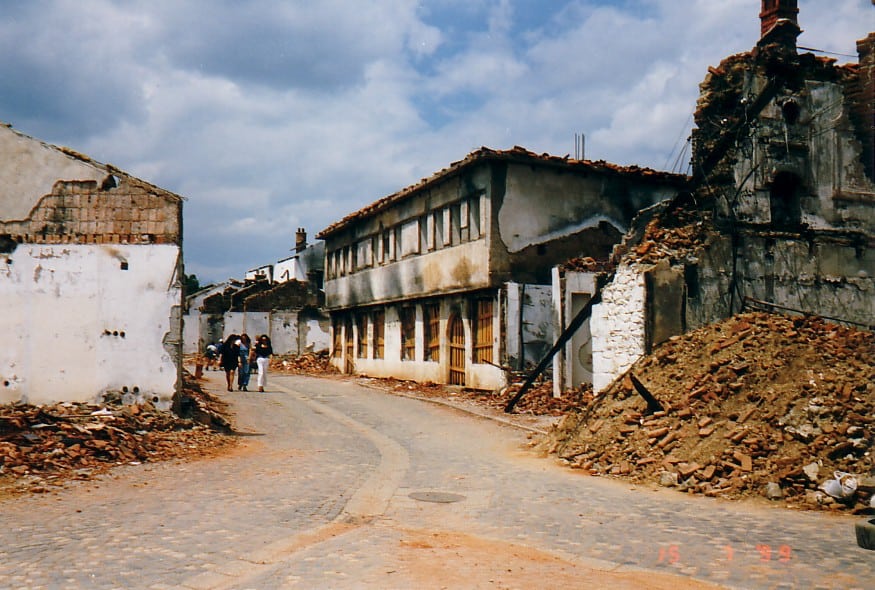
PERINA: Well, everyone would wring their hands when Kosovo was mentioned, but the Europeans by and large did not know what to do. One got the impression they were secretly hoping that in fact the Serbs would keep the Albanians in line so that there would not be an explosion. Some Europeans were reminded of ethnic minority problems in their own countries and had a lot of sympathy with the Serbs. The most active European diplomat was the British Chargé, Ivar Roberts. As far as I know, he was the only other diplomat in Belgrade other than myself and the Russian Ambassador who on occasion had meetings with Milosevic. But even he underestimated the Kosovo problem.
We were the most engaged Embassy on Kosovo, though even with us it was a secondary issue in comparison to Bosnia. The real difference in approach to Kosovo between us and the Europeans was shown after the Dayton Agreement. Here I have to jump ahead a little. Basically, Milosevic made the Dayton Agreement possible. He was the key person who forced the Serb delegation to accept the agreement. Even Holbrooke recognized this.
Milosevic did this because he was not a Serb nationalist but rather a self-serving opportunist. He believed that if he helped Dayton succeed, he would be seen in the world as a peacemaker and given legitimacy and respect, the sanctions on Serbia would be lifted, and his role in starting the whole Yugoslav conflict would be forgotten and forgiven. This is what he most wanted and why he helped Dayton succeed.
The problem was, however, that we were committed to our promise to the Albanians that we would not forget Kosovo. So after Dayton we did not lift all of the sanctions but rather stated that an outer wall of sanctions would remain until the Kosovo issue was resolved. In effect, the economic sanctions were lifted but the political sanctions, such as non-recognition of Serbia-Montenegro, remained.
Milosevic was furious when he learned that some sanctions would remain. He felt that he had been tricked, and it was the beginning of his falling out with Holbrooke. But also — and this is where the Europeans come in — most of them did not support the U.S. on the outer wall of sanctions policy. They did not believe that Kosovo should be a reason for further sanctions on Serbia. Most of them started recognizing Serbia Montenegro and elevating their chargés to Ambassadors. By the time I left Belgrade, I was one of the few remaining Chargé d’Affaires.
This European rush to normalize relations with Serbia and overlook the Kosovo issue was of course the biggest dread of the Kosovar Albanians. I think it was partly because of this development that the Albanians gave up hope that the international community would help them and moved toward developing the Kosovo Liberation Army, which suddenly appeared on the scene about two years later. This was when I was serving as the Deputy Assistant Secretary in the Department, and it took the entire international community by surprise.
Suddenly, the Kosovar Albanians had an army which they had largely secretly put together. It was an amazing feat but also reflected how bad our intelligence was on Kosovo because we were still focusing almost exclusively on Bosnia….
The Road to Dayton
What was the process of getting to Dayton? How did the talks evolve?
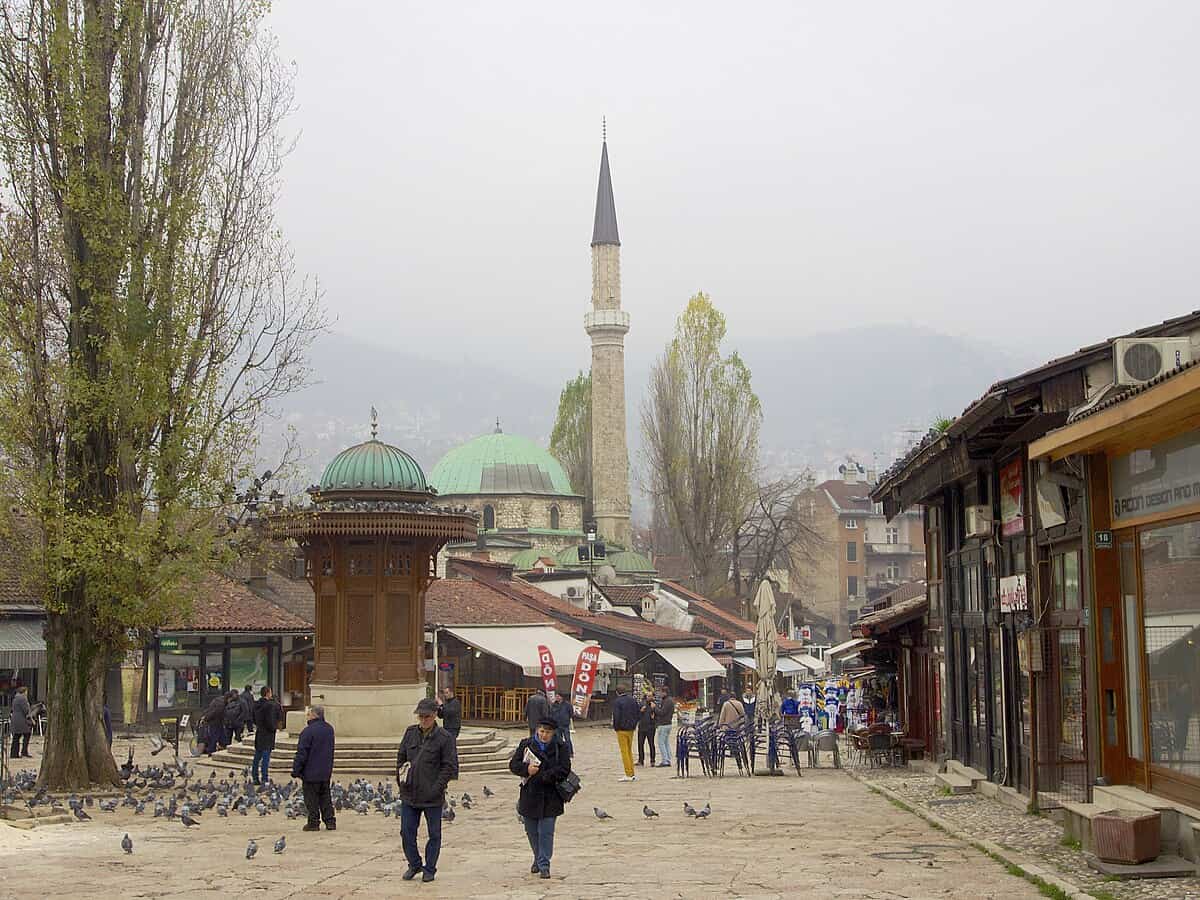
PERINA: Well, we have to go back to the visits by Bob Frasure, the Deputy Assistant Secretary who was handling Yugoslavia and whom I already mentioned. Bob started coming out when it became clear that the policy of just delivering threatening demarches to Milosevic was not working, and when Holbrooke became Assistant Secretary for European Affairs and wanted to get more involved in resolving the conflict.
Frasure came out as sort of an advance party to meet with Milosevic and explore if there was any common ground for negotiations that Holbrooke would then take over. He made several visits, and in the end we drew up a broad list of principles by which we thought the conflict could be resolved. The bottom line of these principles was that Bosnia had to remain as a single federalist state, albeit Republika Srpska, a Serb entity with considerable autonomy, could continue to exist within Bosnia.
Milosevic agreed to this, and it was the cue for Holbrooke to come in. Milosevic knew this. We had told him that if talks at the Frasure level succeeded, then a higher level representative — understood to be Holbrooke — would come to Belgrade. It was an incentive for Milosevic because he wanted to get the U.S. involved, and he wanted to deal with the highest-level American possible.
He was also at this time trying to clean up his image in other ways. For example, we had a long-standing child custody dispute with Belgrade. An American mother was trying to get her children back from a Serbian father who had absconded with them to Serbia after he lost custody in U.S. divorce proceedings. For about five years the mother with the Embassy’s help had been trying to get the children back, with the Serbs always claiming that they did not know their whereabouts. One day shortly before Dayton, out of the blue, Milosevic called me to say that the children had been found and could be returned to the mother. We immediately picked them up and kept them in the Embassy until the mother arrived, about 24 hours later, for a very dramatic and emotional reunion, since they hardly had memory of her. I have no doubt that the Serbs had known for a long time where the children were but Milosevic finally made the decision to return them when he felt it would most bolster his image with the Americans.
The Tragic Death of Robert Frasure
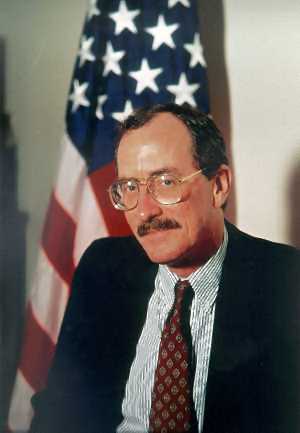
I remember Holbrooke’s first visit to Belgrade. He stayed at the Ambassador’s residence, where I was by that time living. He came with Bob Frasure and it was the first of about 20 visits by Holbrooke during my time, though I did not keep exact count. At least it seemed like 20, if not more. It was a get-acquainted session but basically he hit it off with Milosevic. Then with each subsequent visit he got more and more involved. He started coming out with the interagency team he put together that included NSC [National Security Council], DOD [Department of Defense] and JCS [Joint Chiefs of Staff] reps. The JCS rep was a fellow named Wes Clark, who at the time I think was a one-star general.
It was this group of about a half dozen people, including Holbrooke, Bob Frasure, Chris Hill, Wes Clark as the JCS rep and an OSD [Office of the Secretary of Defense] rep, that formed the key negotiating team.
This group changed shortly thereafter, however, because of the tragic road accident outside Sarajevo in which Bob Frasure, the NSC rep Nelson Drew, and the DOD rep Joseph Kruzel were killed. This happened on August 19, 1995. The whole delegation was traveling from Belgrade to Sarajevo and had been at my house for dinner the night before. Bob Frasure made his last phone call to his wife from our residence. It was an enormous tragedy. My whole family had gotten to know Bob well from his many previous visits when he stayed with us. We were all devastated, including our daughters.
I subsequently flew back to Washington for the memorial service and funeral. I remember telephoning Milosevic that Saturday afternoon to tell him about the accident. I left word with his assistant, and Milosevic called back in about two minutes. He did sound genuinely shocked by the news. He had gotten to know Bob well and I think liked him. He later invited Bob’s wife and daughters to visit Belgrade and see where Bob had spent his last days. Bob was replaced on the delegation by Chris Hill, who then came on all of Holbrooke’s subsequent visits.
